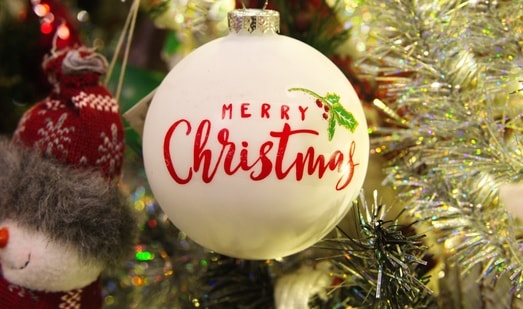Christmas 2021: Why do we say ‘Merry Christmas’ and not ‘Happy Christmas’?
Before anyone points out, we know “Happy Christmas” hasn’t faded completely and the greeting is still widely used in England, which could be due to the queen’s influence since Queen Elizabeth wishes British citizens a “Happy Christmas” every year in her annual broadcast. Rumour has it that she prefers happy to merry since she associates the latter word with a sense of boisterousness and even intoxication.

Christmas 2021: Why do we say ‘Merry Christmas’ and not ‘Happy Christmas’? (Photo by Robert Linder on Unsplash)
Others believe that “merry” was associated with the rowdiness of the lower classes while “happy” took on a higher class connotation as even the royal family’s preferred greeting is “Happy Christmas”. On the other hand, early church leaders in Great Britain are believed to have reportedly encouraged Christianity followers to be happy rather than engage in the free-spirited act of “merry-making”, a grammatical lesson that even historians tend to believe.
However, “Merry Christmas” is a traditional saying that has been around for centuries, to convey a more emotional and unrestrained celebration while “Happy Christmas” is conservative and reserved as per linguistic comparison. Written in a letter from bishop John Fisher to Henry VIII’s chief minister Thomas Cromwell, “Merry Christmas” greeting dates back to at least 1534 in London.
The 16th century English carol “We Wish You a Merry Christmas” further hyped the phrase and with the publication of Charles Dickens’ novel ‘A Christmas Carol’ in 1843, the greeting picked up steam. It also appeared on the first commercially-sold Christmas card that year and since Victorian Christmas went on to define many of today’s Christmas traditions, “Merry Christmas” stuck around in Christmas songs and stories.
“Merry Christmas” became prevalent in the US while “Happy Christmas” tends to be the preferred phrase for many in UK, even as both words evolved and changed meanings over time.
Follow more stories on <strong>Facebook </strong>& <strong>Twitter</strong>
SHARE THIS ARTICLE ON






